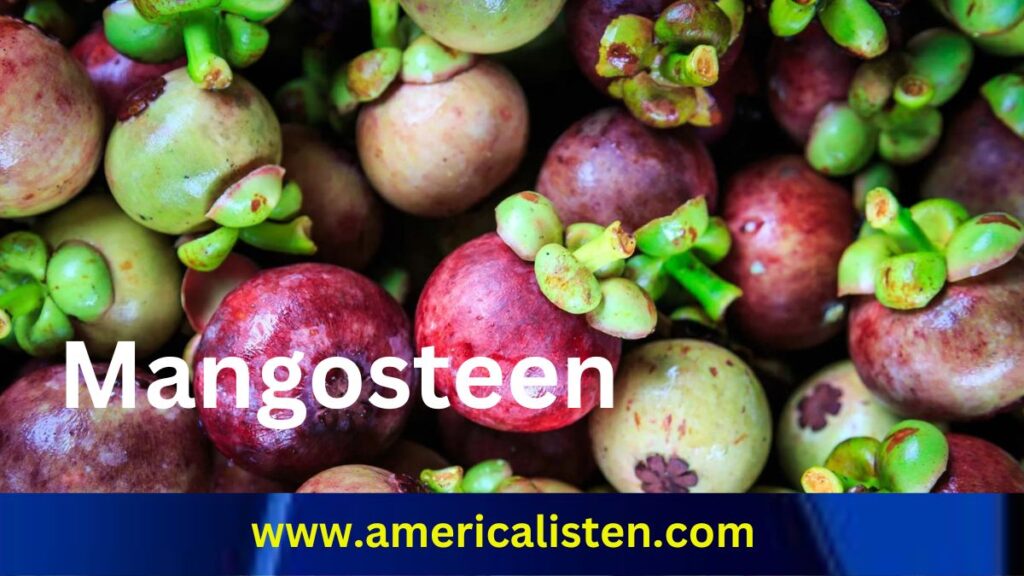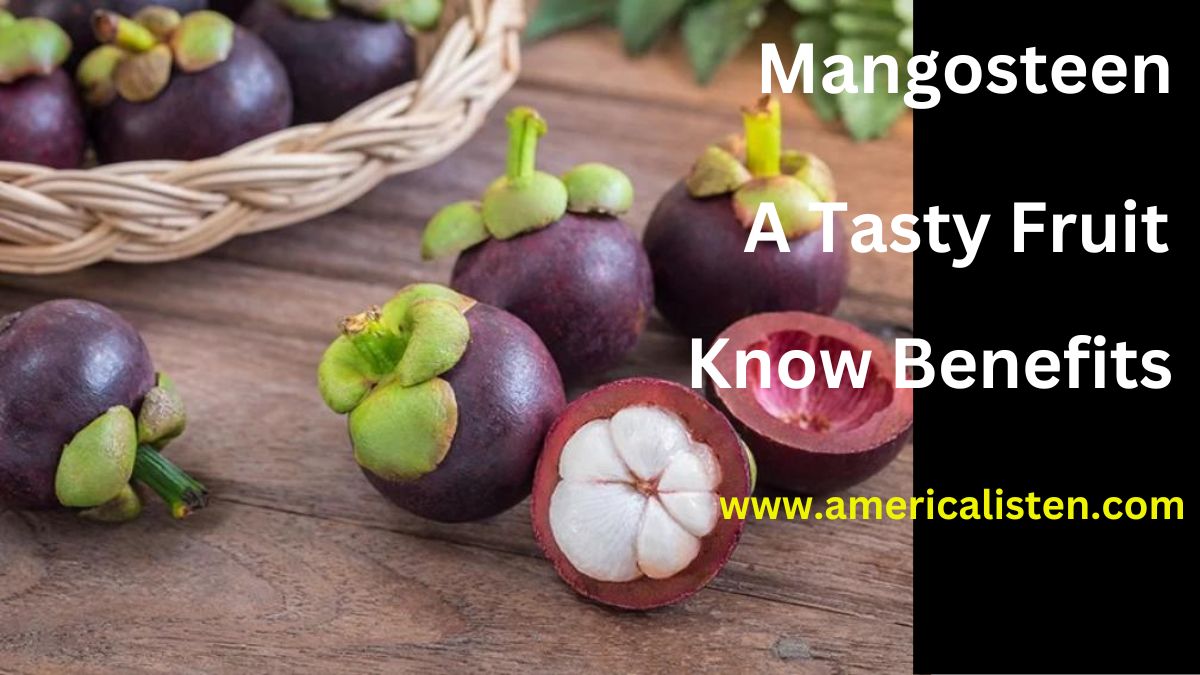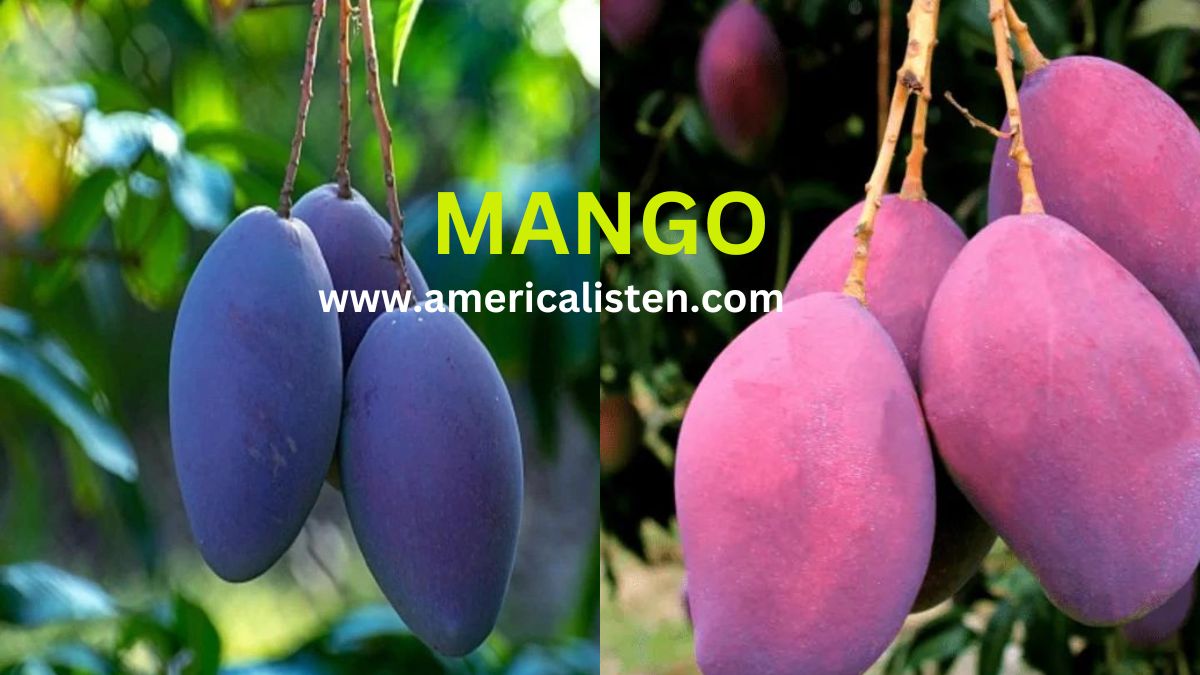Mangosteen, often hailed as the “queen of fruits,” is a tropical gem that encapsulates a unique blend of exquisite flavor and exceptional nutritional benefits. Scientifically known as Garcinia mangostana, this small, round fruit boasts a thick, purple rind that encapsulates snow-white, juicy segments. Native to Southeast Asia, particularly Thailand, Malaysia, Indonesia, and the Philippines, the mangosteen has transcended its geographical roots to captivate taste buds worldwide.
1.Rich in antioxidants, mangosteen supports overall health by combating oxidative stress and neutralizing free radicals in the body.
2.From fresh consumption to salads, smoothies, and desserts, mangosteen adds an exotic and flavorful touch to a variety of culinary creations.
3.Studies suggest anti-inflammatory, cardiovascular, and immune system support, along with possible anti-cancer properties, making mangosteen a nutritionally valuable fruit.
4.While generally safe, individuals should be aware of potential allergic reactions, staining issues, and interactions with medications when incorporating mangosteen into their diet.
5.Explore the diverse world of mangosteen-infused recipes, from refreshing salads to indulgent desserts, embracing its unique taste and potential health advantages.
Renowned for its delectable taste, mangosteen is celebrated for its harmonious combination of sweet and tangy notes, creating a flavor profile often described as a luscious blend of citrus, peach, and strawberry. Beyond its culinary allure, the mangosteen is revered for its potential health benefits, as it is rich in antioxidants, vitamins, and minerals. With a history steeped in cultural significance and traditional medicinal uses, the mangosteen has emerged as more than just a delectable fruit; it is a symbol of tropical splendor and well-being. Join us on a journey to explore the enchanting world of mangosteen, where taste meets health in a vibrant burst of nature’s goodness.

Medical Benefits:
Mangosteen, often referred to as the “queen of fruits,” is not only a delight for the taste buds but also harbors an array of potential health benefits. While scientific research on mangosteen is ongoing, here are some of the reported health-promoting properties associated with this tropical fruit:
- Rich in Antioxidants: Mangosteen is packed with potent antioxidants, including xanthones, which may help combat oxidative stress in the body. Antioxidants play a crucial role in neutralizing free radicals, which are implicated in various chronic diseases and aging.
- Anti-Inflammatory Properties: Some studies suggest that mangosteen may have anti-inflammatory effects. Chronic inflammation is associated with many health issues, and the anti-inflammatory compounds in mangosteen may help mitigate inflammatory responses.
- Immune System Support: The vitamins and minerals present in mangosteen, such as vitamin C, may contribute to a bolstered immune system. A robust immune system is essential for defending the body against infections and illnesses.
- Cardiovascular Health: Research indicates that mangosteen may have cardiovascular benefits. It may help regulate blood pressure, reduce cholesterol levels, and improve overall heart health, potentially lowering the risk of cardiovascular diseases.
- Anti-Cancer Potential: Some studies suggest that the xanthones found in mangosteen may possess anti-cancer properties by inhibiting the growth of certain cancer cells. However, more research is needed to fully understand the extent of mangosteen’s potential in cancer prevention and treatment.
- Gastrointestinal Health: Traditional medicine has long utilized mangosteen for its potential to aid digestive health. It may have anti-diarrheal effects and could help alleviate symptoms associated with certain gastrointestinal conditions.
- Weight Management: Compounds in mangosteen may be associated with weight management. Some studies suggest that mangosteen extracts could inhibit the accumulation of fat cells and potentially aid in weight loss efforts.
It’s important to note that while mangosteen shows promise in various health aspects, individual responses may vary, and more research is needed to establish concrete evidence for some of these potential benefits. As with any dietary addition or supplement, it’s advisable to consult with a healthcare professional for personalized advice, especially if you have existing medical conditions or are taking medications.
USES:
Enjoying mangosteen is a delightful experience, and this tropical fruit can be enjoyed in several ways. Here’s a guide on how to use mangosteen:
- Selecting Ripe Mangosteens:
- Look for fruits with a deep purple, thick, and firm rind.
- The crown at the top should be green and fresh, indicating the fruit’s freshness.
- Avoid mangosteens with soft spots or mold.
- Peeling the Mangosteen:
- Use a sharp knife to make a shallow cut around the circumference of the fruit, being careful not to pierce the edible segments inside.
- Gently twist the fruit to open it. The thick rind should easily separate into two halves.
- Revealing the Segments:
- Inside, you’ll find several juicy, white segments. These are the edible parts of the mangosteen.
- The number of segments can vary, and sometimes there may be a seed in one or more of the segments.
- Eating the Segments:
- Pop the segments into your mouth and enjoy the unique combination of sweet and tangy flavors.
- Be cautious of the dark purple juice, as it can stain clothing and surfaces.
- Using Mangosteen in Culinary Creations:
- Mangosteen can be a delicious addition to fruit salads, smoothies, or desserts.
- Mix mangosteen segments with other tropical fruits for a refreshing fruit salad.
- Blend mangosteen into a smoothie for a burst of flavor and nutrition.
- Mangosteen Juice:
- To make mangosteen juice, remove the segments and blend them with a bit of water.
- Strain the mixture to remove the pulp, and you’ll be left with a flavorful juice.
- Mangosteen in Cooking:
- While mangosteen is typically enjoyed fresh, some cuisines incorporate it into savory dishes.
- Experiment with using mangosteen in sauces or salsas to add a unique twist to your recipes.
- Mangosteen Supplements:
- Mangosteen is also available in supplement form, such as capsules or extracts. These supplements are often marketed for their potential health benefits.
Remember that mangosteen has a short shelf life, so it’s best enjoyed when fresh. Additionally, due to its popularity and demand, mangosteen may be available frozen or in the form of juice or supplements outside of regions where it is grown. Whether enjoyed on its own or as part of a culinary creation, mangosteen offers a tantalizing taste of the tropics and a host of potential health benefits.
Mangosteen’s sweet and tangy flavor can add a unique and tropical twist to a variety of recipes. Here are some creative ways to use mangosteen in your culinary creations:
- Mangosteen Salad:
- Combine mangosteen segments with other tropical fruits like pineapple, papaya, and kiwi for a refreshing fruit salad.
- Add a touch of mint or basil for extra freshness.
- Smoothies and Beverages:
- Blend mangosteen with yogurt, banana, and a splash of coconut water for a delicious tropical smoothie.
- Create a mangosteen sorbet or frozen drink for a cooling treat.
- Desserts:
- Top desserts like ice cream, cheesecake, or panna cotta with mangosteen segments.
- Mix mangosteen into fruit tarts or pies for a burst of flavor.
- Salsas and Chutneys:
- Combine mangosteen with diced tomatoes, red onion, cilantro, and lime juice for a unique fruit salsa.
- Use mangosteen in chutneys to accompany grilled meats or seafood.
- Mangosteen Sauce:
- Create a sweet and tangy sauce by blending mangosteen with sugar, a squeeze of lime, and a pinch of salt.
- Drizzle the sauce over pancakes, waffles, or grilled chicken.
- Cocktails and Mocktails:
- Muddle mangosteen in cocktails for a burst of flavor. It pairs well with vodka, rum, or tequila.
- Make a refreshing mocktail by combining mangosteen juice with sparkling water and a splash of citrus.
- Fruit Sushi Rolls:
- Create a tropical twist on sushi by rolling mangosteen, avocado, and cucumber in seaweed and sushi rice.
- Serve with soy sauce or a mango dipping sauce.
- Mangosteen Dressing:
- Blend mangosteen with olive oil, balsamic vinegar, honey, and Dijon mustard to make a flavorful salad dressing.
- Drizzle the dressing over mixed greens or a fruit salad.
- Mangosteen Popsicles:
- Make homemade popsicles by blending mangosteen with coconut milk, honey, and a splash of lime juice.
- Pour the mixture into popsicle molds and freeze for a refreshing treat.
- Mangosteen Jam:
- Cook mangosteen with sugar, lemon juice, and a bit of pectin to make a delicious jam.
- Spread the jam on toast or use it as a filling for pastries.
Experimenting with mangosteen in various recipes allows you to appreciate its versatility and enhance the overall dining experience with its unique tropical flavor. Whether incorporated into sweet or savory dishes, mangosteen can bring a touch of exotic charm to your culinary repertoire.
While mangosteen is generally considered safe for most people when consumed in moderation, it’s essential to be aware of potential side effects and considerations:
- Allergic Reactions:
- Some individuals may be allergic to mangosteen. Allergic reactions can include itching, swelling, hives, or difficulty breathing. If you experience any of these symptoms after consuming mangosteen, seek medical attention immediately.
- Staining:
- The dark purple juice from mangosteen can stain clothing and surfaces. Be cautious when handling the fruit to avoid potential staining.
- Interactions with Medications:
- Mangosteen may interact with certain medications. It contains compounds that inhibit cytochrome P450 enzymes, which are involved in drug metabolism. This interaction could potentially affect the effectiveness of medications metabolized by these enzymes. If you are taking any medications, especially those with narrow therapeutic ranges, consult your healthcare provider before adding mangosteen to your diet.
- Digestive Issues:
- Consuming mangosteen in excessive amounts may lead to digestive issues such as diarrhea or stomach upset. It is advisable to enjoy mangosteen in moderation.
- Weight Gain:
- While mangosteen has potential weight management benefits, excessive consumption, especially in the form of sweetened juices or desserts, may contribute to caloric intake and could lead to weight gain.
- Pregnancy and Breastfeeding:
- There is limited information on the safety of mangosteen during pregnancy and breastfeeding. It’s advisable for pregnant or breastfeeding women to consult with their healthcare provider before including mangosteen in their diet.
- Low Blood Sugar:
- Some studies suggest that mangosteen may have hypoglycemic effects. People with diabetes or those taking medications to lower blood sugar levels should monitor their blood glucose levels carefully when incorporating mangosteen into their diet.
- Lack of Standardization in Supplements:
- Mangosteen supplements, such as capsules or extracts, may lack standardization in terms of quality and dosage. If considering mangosteen supplements for potential health benefits, it is recommended to consult with a healthcare professional for guidance.
It’s crucial to note that individual responses to mangosteen can vary, and these side effects are not universally experienced. If you have concerns about including mangosteen in your diet, especially if you have pre-existing medical conditions or are taking medications, it’s advisable to consult with a healthcare professional for personalized advice.
TO KNOW MORE ABOUT Mangosteen PLEASE CLICK ME
You May Like :


